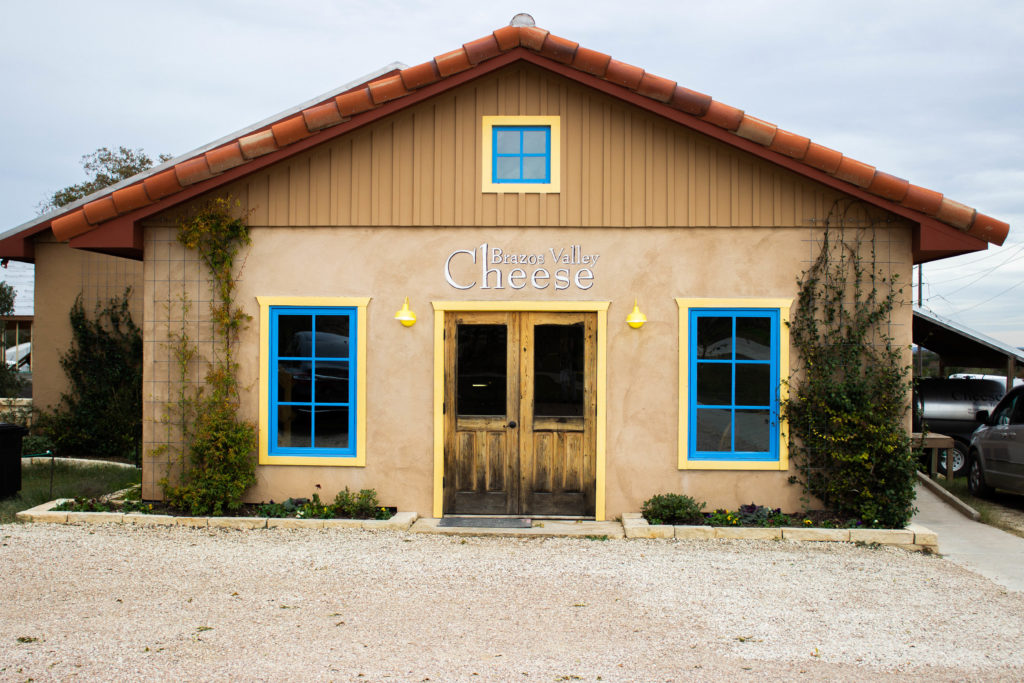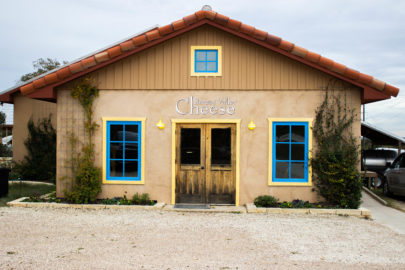Story & Photos by McKenzie Oviatt

In June of 1973, Homestead Heritage started as a small chapel in the slums of New York City with around 30 members sharing a common goal––to have a peaceful chapel, bringing diverse people together. Although the church members lived in separate units, when they came together they wanted to embrace each other with inclusion and cooperation. As the city grew more congested and industrialized, the church members went back to their roots: seeking wholeness, simplicity and sustainability.
The community in Lower East Side Manhattan relocated and started forming other fellowships across the world––one large congregation eventually settling in Waco, Texas. Today, the Texas community has about 190 families.
People living in the Homestead Heritage fellowships try to apply biblical principles to everyday life.They sanctify themselves from secular practices, they take care of one another and they are an agrarian community. They do not have active participation in politics, they do not share from the same pool of money and they are not detached from the rest of Waco.
The community is composed of people born into the community, people who have experienced great personal transformation and those who slowly assimilated into their society. They are accepting of anyone who is willing to embody the values of those shared at Homestead and they are willing to talk to people about living among them.
Marc Kuehl is an example of a man who lived a turbulent life as a young adult and dramatically changed his life with the influence of those at Homestead Heritage.
“When I was young, I became infatuated with gangs and drugs and the whole hip-hop culture and it set me down a destructive path of drugs, gangs, running from the police and getting kicked out of my parents’ house,” Kuehl said.
After being involved in the wrong crowd, Kuehl was facing a 15-year jail sentence. Kuehl said he spent the next several months trying to do good, but ended up fighting in nightclubs or doing drugs. He was drawn to the life he was so familiar with.
In 2005, Kuehl pleaded to a lesser charge and was released from jail.
“I had to make a commitment to let God change my mind and change my path. I tried to refrain from cursing or thinking about things I knew I shouldn’t. Six months later I pled to a lesser cause and got off early. After I got out of jail, I was back to his old ways and mixing with the wrong crowds again,” Kuehl said. “It wasn’t until something radical happened to me that I truly changed my life around.”
The radical transformation happened when Kuehl got out of prison. He decided to visit his 16 cousins in Texas to find a different way of life. It was then that he found Homestead Heritage.
“I did not want to stay in Texas on a farm with a bunch of Christians. It was not my idea of fun, but I was open to anything,” Kuehl said. “So I showed up bald-head, tattoos, earrings, cigarettes, baggy-clothes, big attitude. I thought I was a pretty tough guy.”
One of his cousins showed him around the property and told him that he should consider living at Homestead Heritage. Within one hour, his cousin saw right through his tough-guy facade.
“I felt like God started to change the way I looked at things, the way I thought about things. I wanted to become this new person,” Kuehl said.
Since 1999, Kuehl’s cousin, Rebekah, has had a hobby of making cheese at Homestead Heritage. Kuehl worked outside in the Texas heat for the first six months of living at Homestead. After Kuehl found a job opening at the cheese shop, working indoors, Kuehl said it seemed like an easy decision to take the job.
Soon after he started working at the Brazos Valley Cheese shop, Kuehl was enthralled with the cheese-making process. He started selling 30 pounds of cheese per week at the local farmers market.
Word spread of Kuehl’s transformative testimony and people grew interested in knowing more about his story. People said the cheese tasted delicious, but it was also Kuehl’s story that drew the customers in. People started bringing their friends to the farmers market and said they wanted Kuehl to recount his story in front of more people.
“Those people heard something they haven’t heard before, they saw something they couldn’t believe, they felt something when they heard my story and they tasted something. All their senses were engaged. There is something in cheese-making that is a ministry,” Kuehl said. “I wanted to make the best cheese I possibly could from that day because I knew it was an honor to God.”
Kuehl started to expand the business, working with chefs all over the state. They moved production across Texas, but finally planted the production line at Homestead Heritage.
The Brazos Valley Cheese shop is a “rebel with a cause” as they compete against large dairy farms. Their sustainable process that they use to make the cheese along with the motivation that their work is an honor to God is what they believe drives the business forward.
Although Kuehl joined the community later in life, he has seen his life transformed by embracing a new community that strives to leave a different legacy. From their business models of sustainability to their personal testimonies, Homestead Heritage is vividly set apart from other communities.
Many community members have backgrounds similar to Kuehl’s. They saw a different way to life and decided to adapt to their ideals. There are also other people who came into the community with similar values already.
Sally and Derek Varejka joined the community after being missionaries. Together, they have seven children who have all been raised and homeschooled in the Waco fellowship.
When Sally graduated college, she worked as a nurse before serving as a missionary with her husband. Sally discovered Homestead Heritage and they couple grew increasingly interested in what type of life it provided. After touring Homestead several times, they immersed themselves in the community. Derek bought the cafe that is located at Homestead and emphasized food preservation and served locally sourced food.
Whether people came from the religious mission field or were committing crimes before coming to Homestead, the community is intoxicating. The community members eventually all share the common goal of producing quality goods with ethical methods.
Another way that Homestead sets itself apart is how they treat the youth and the elderly. With an emphasis on creating a legacy built upon family and intentional community, many couples have multiple children and choose to homeschool them. The parents communicate with each other about how they can share the responsibilities of teaching the children.
“We believe in teaching children real, tangible skills that were once taught in previous generations,” Derek said.
The children are taught the basic lessons that other children receive in school, plus more hands-on experience. They choose a craft that they are interested in and create something throughout the school year.
After the basic lessons are taught, the children can choose subjects of their choice to heavily invest in. One of Sally and Derek’s children is learning Russian, their eldest daughter works as a seamstress and their younger daughter plays musical instruments. The children have full independence to embrace their natural skills.
Just as the community comes together to help the children mature, they also collaborate on how to care for the elderly people. As the beginning members of the Texas fellowship ages, the need for elderly care increases. The community members believe in taking care of one another from the beginning to the end of life.
Since Sally and Derek’s children are growing up, Sally said she is looking for other ways to serve the community, now that she doesn’t have young children to tend to.
“I enjoyed being a nurse and I would love to help our elderly members. They are starting to reach a certain age where they need assistance, and I could help them,” Sally said.
The community takes care of one another throughout the duration of their lives. They view children as a gift from God and the elderly as a group of people to learn valuable wisdom from, Sally said.
One way to learn more about the community and experience their lifestyle is to visit during their annual fair. In late October and early November, children living at Homestead Heritage make an assortment of crafts and handmade goods to sell at the annual Homestead Fair held on Thanksgiving weekend. Around 200,000 people come from around the world go to see their quality craftsmanship. The children make small goods such as pillows, beanies, scarves and pottery. The children are a large component to the production of the Homestead Fair.
“The children will show their skills in blacksmithing, woodworking, boat building, quilting, weaving, cheese making and food preservation,” Sally said.
The children practice for weeks at a time in preparation for the 100-voice children’s choir and 40-piece orchestra performance at the fair. For hours children sing and play their instrument while the younger children and parents watch. Instead of playing on electronic devices and complaining about the cold air or hours they spend sitting, they are hard at work crafting their pieces that will be sold during the fair. No matter how young the child or how new a member is to the community, everyone has a contributing role in the fair, as well as in the community.
The Homestead Fair has brought international attention to its continuing legacy of providing expert services, beautiful crafts and ethical farming. For a couple days each year, the fair continues to allow others to peer inside a different way of life.
Since 1973, Homestead Heritage has created an internationally known legacy for its quality craftsmanship, intentional Christian living and counterwcultural lifestyle. The Homestead Heritage community yearns to live a peaceful, agrarian life that offers hope for those seeking a different life and for people wanting to go back to their roots.

